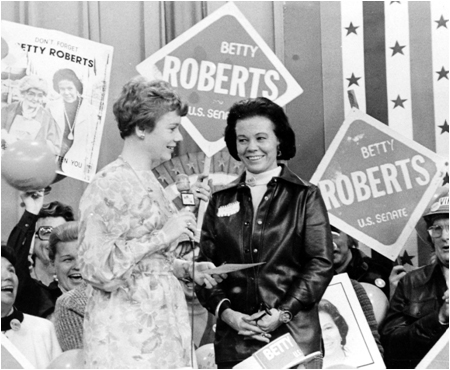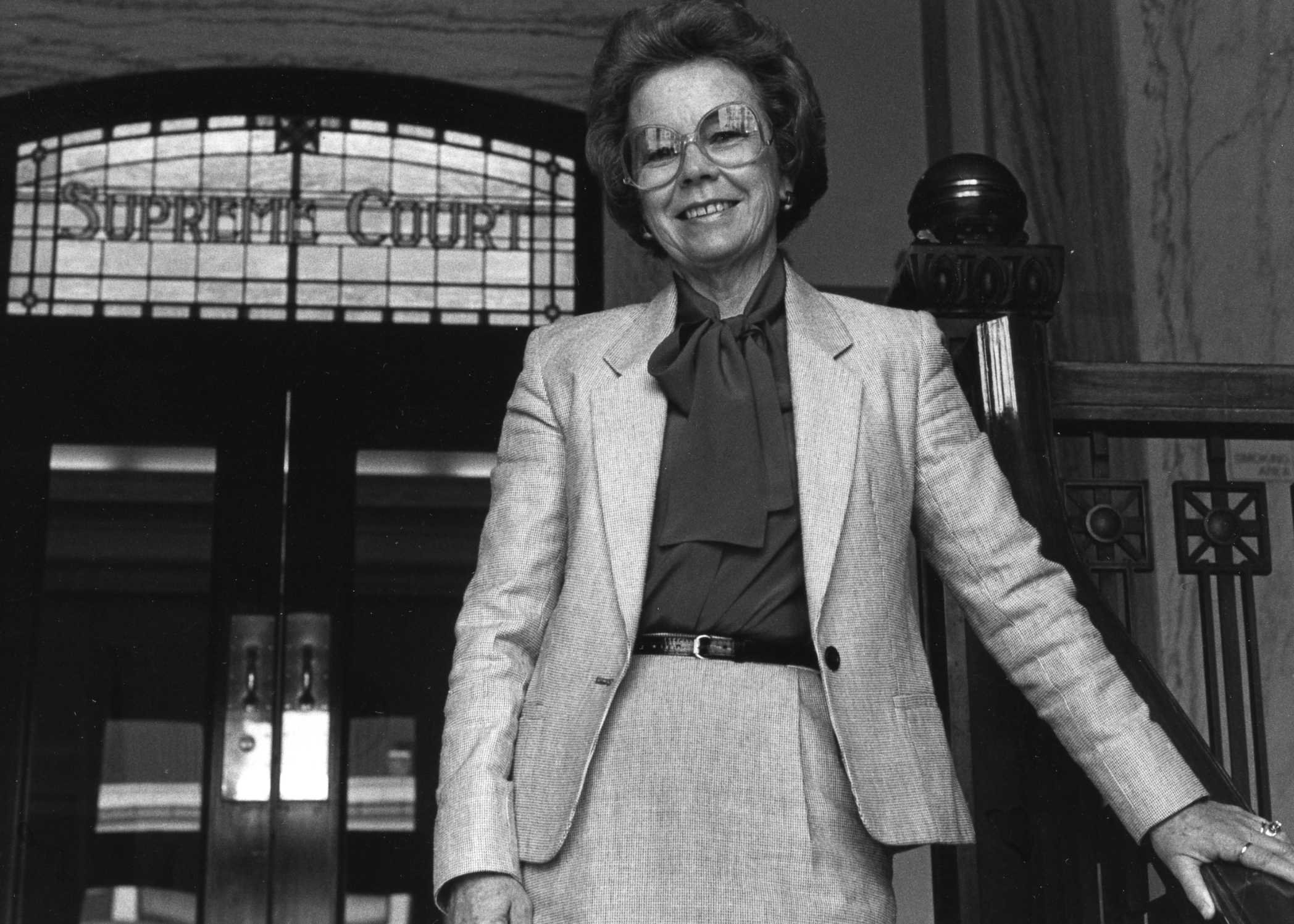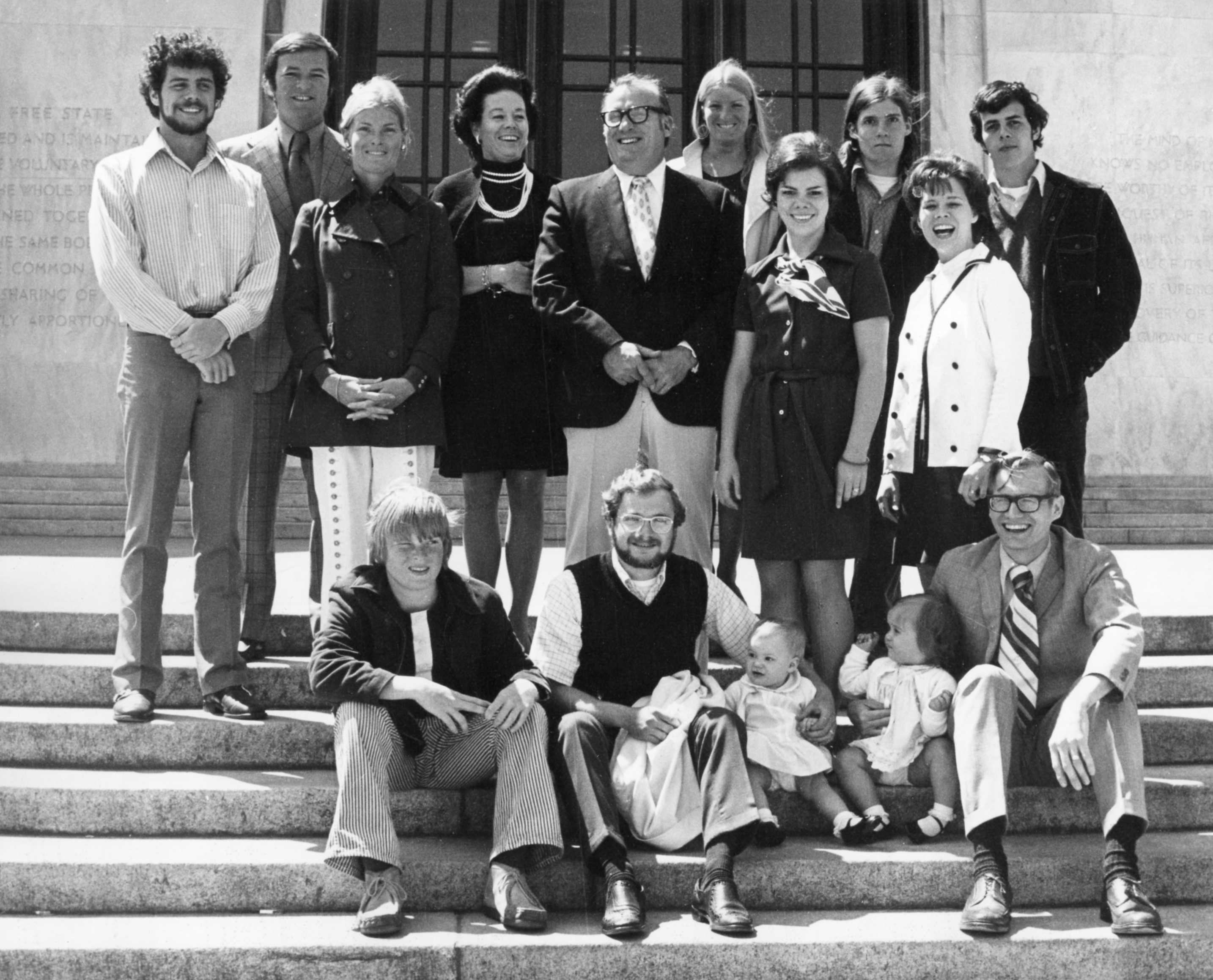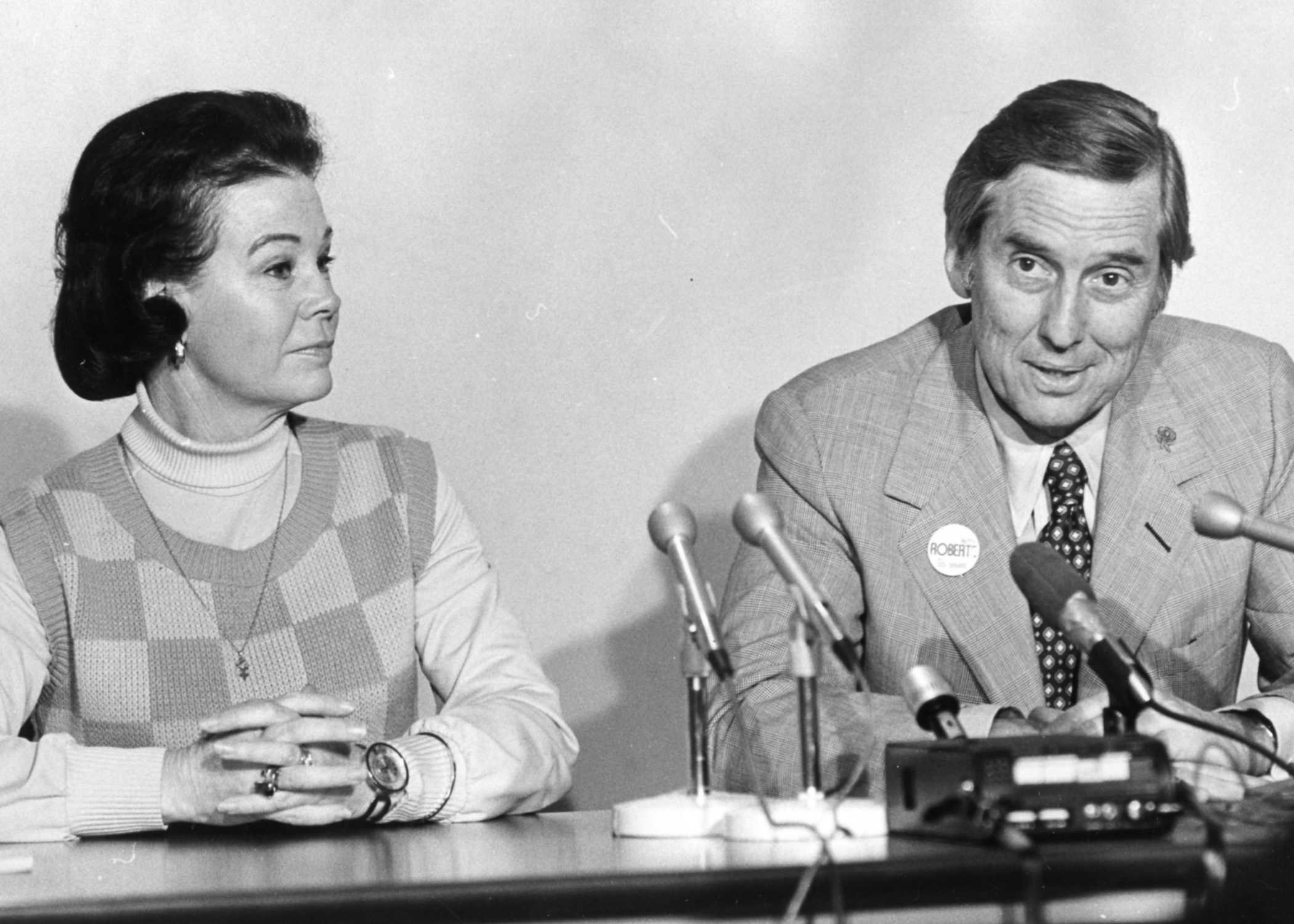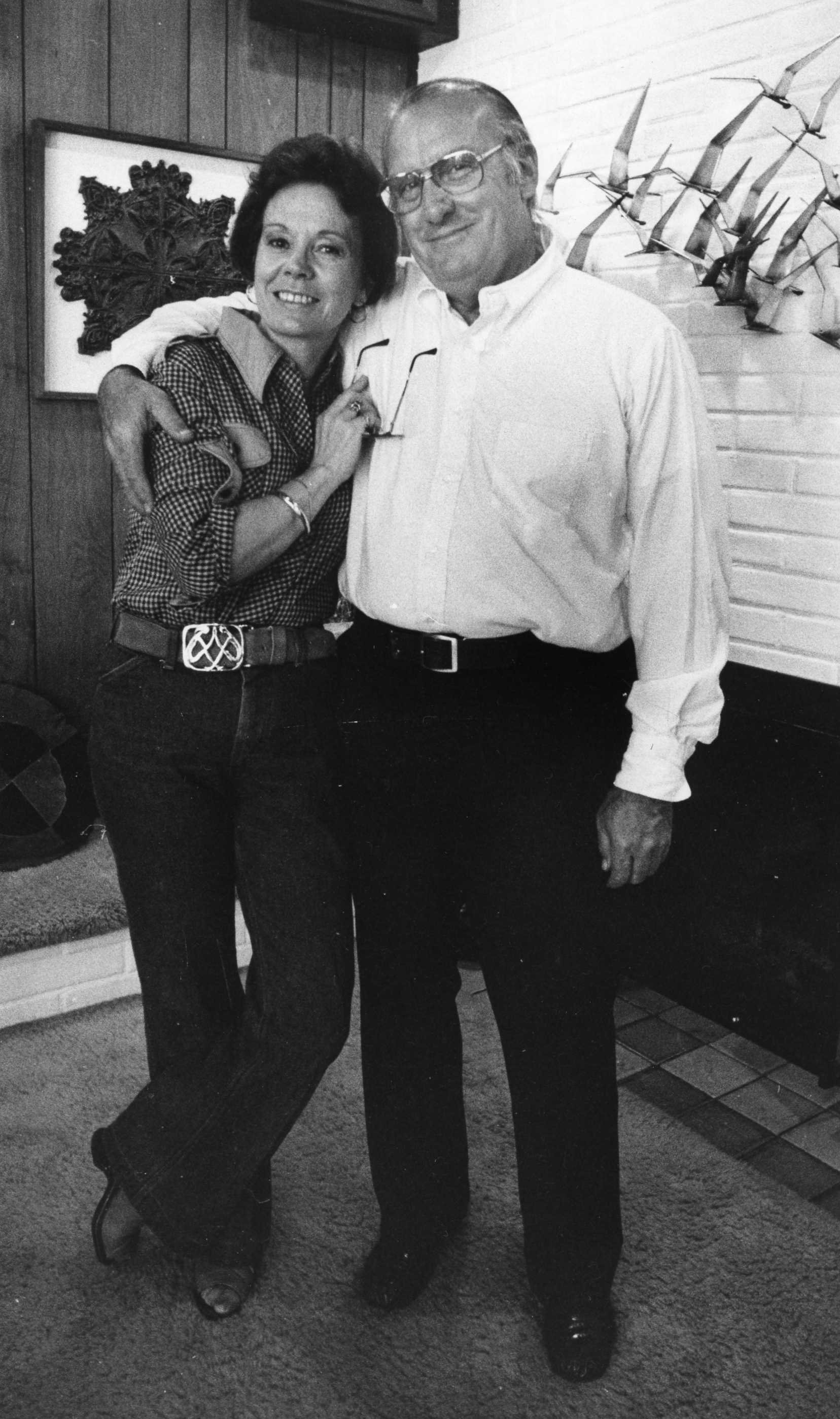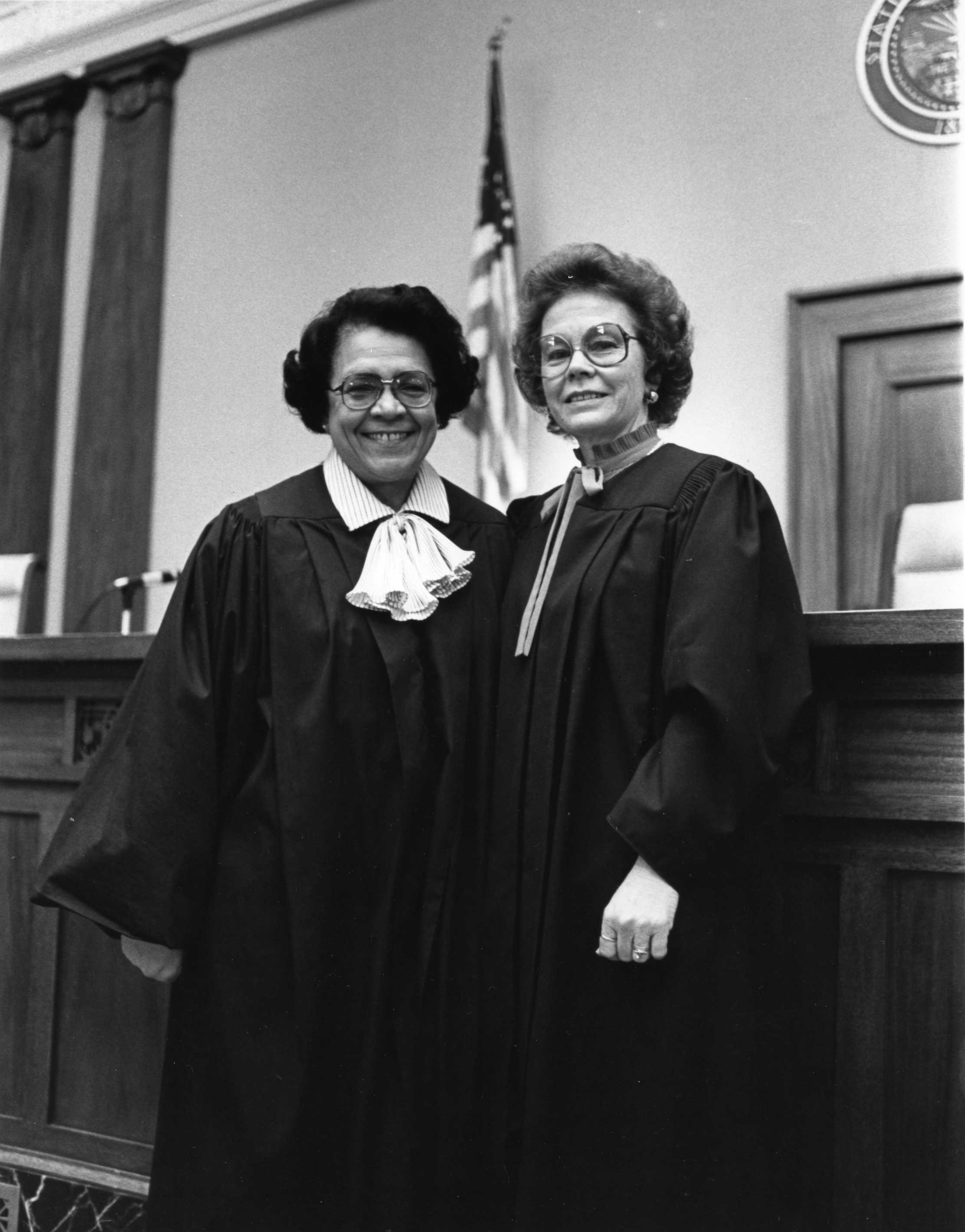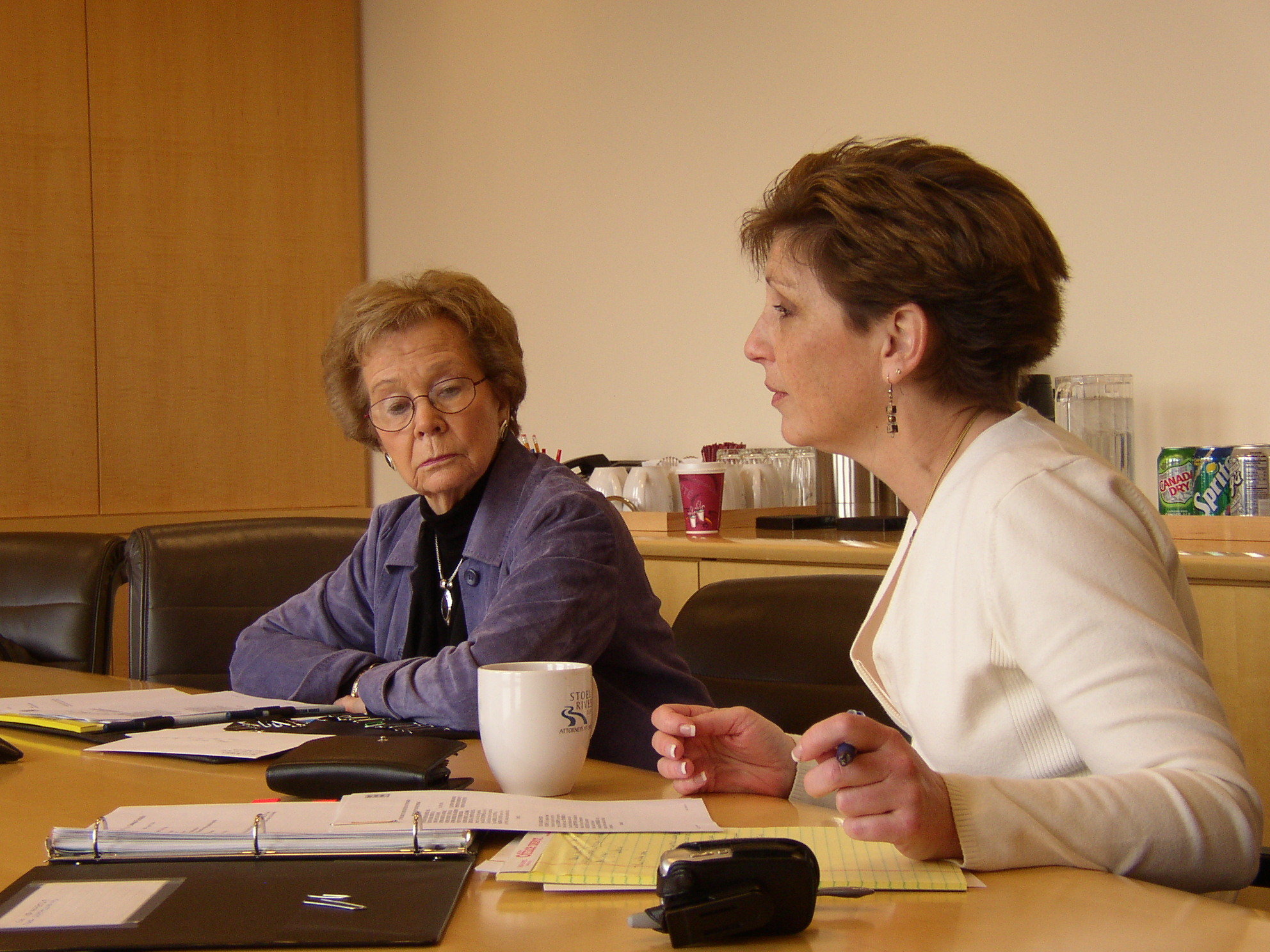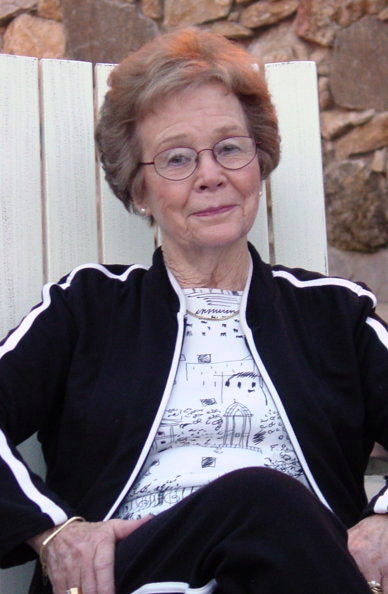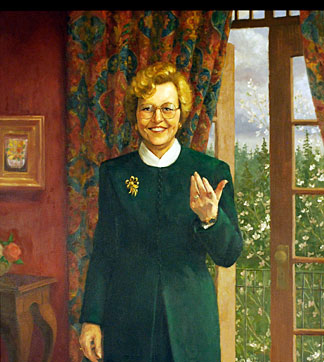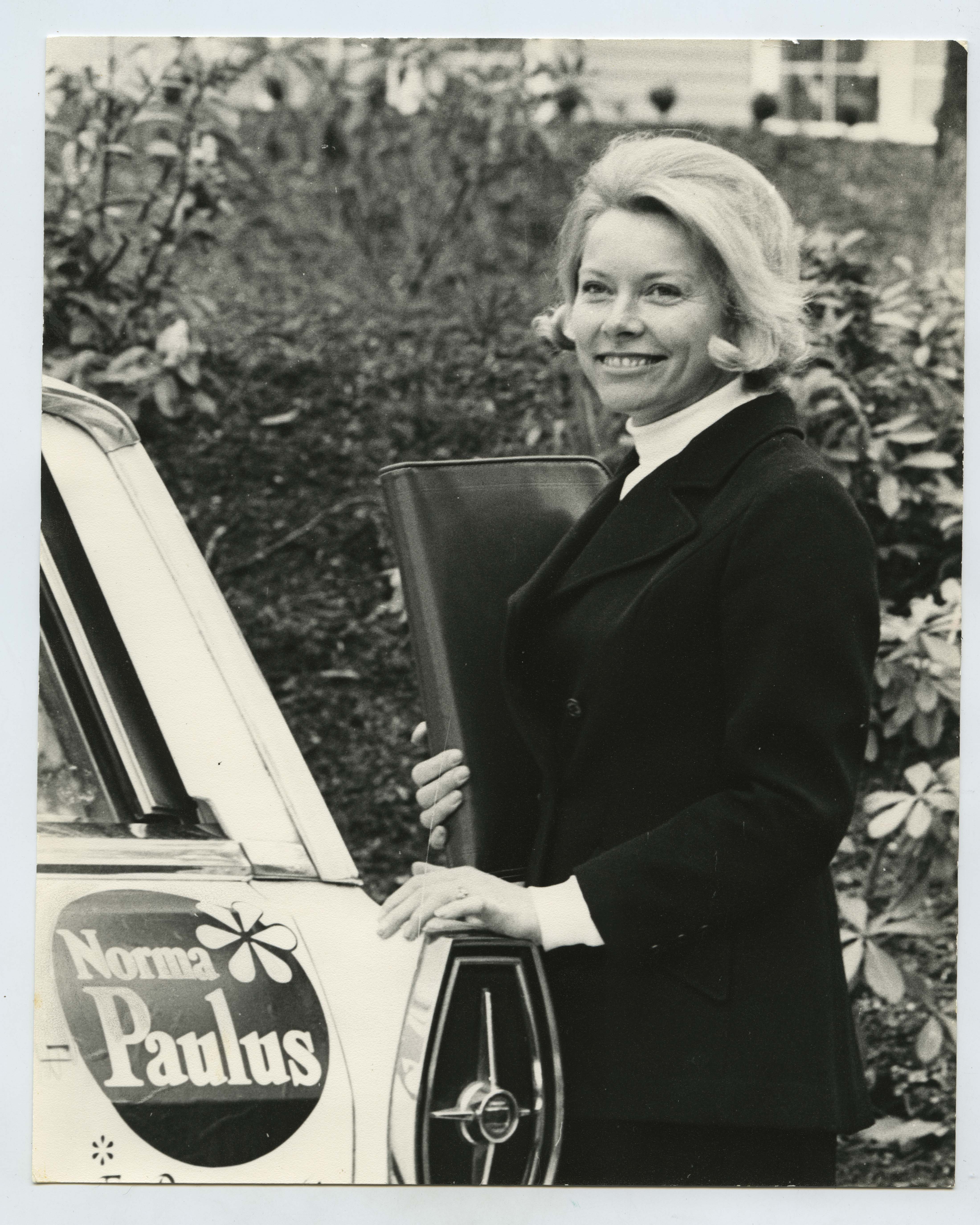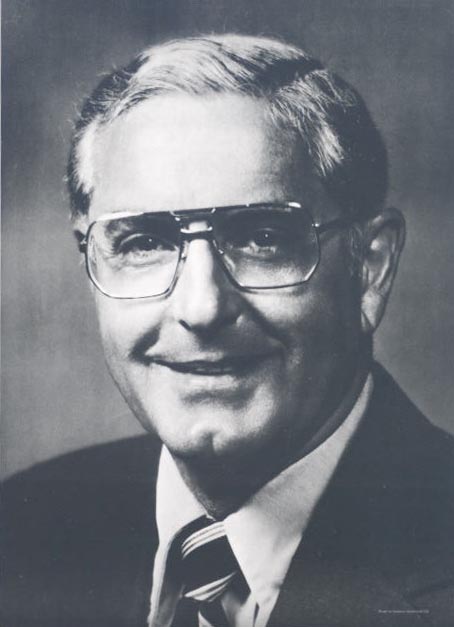Betty Roberts was a thirty-two-year-old housewife with four children when she went back to college in 1955. Her decision went against the wishes of her banker husband and the conventions of 1950s society. That marriage did not last, but Roberts’s step toward independence bore abundant fruit, putting her on the path to a long career in Oregon law and politics. She broke two significant gender barriers, becoming the first woman to serve on both the Oregon Court of Appeals and the Oregon Supreme Court.
Betty Lucille Cantrell was born in Kansas on February 5, 1923, the youngest of three children of David Murray Cantrell and Mary Pearl Higgins Cantrell. She spent most of her childhood in Wichita Falls, Texas. After her father became disabled from drinking tainted bootleg liquor, her mother took in laundry to support the family through the bleakest days of the Great Depression. President Franklin D. Roosevelt’s New Deal made an indelible impression on young Betty: “I began to understand that government is good when it helps its neediest citizens,” she wrote in her 2008 memoir, With Grit and By Grace: Breaking Trails in Politics and Law.
In 1942, at nineteen years old, she married Bill Rice, an U.S. Army Air Forces drill instructor who was a banker from Portland in civilian life. She accompanied him to Oregon after World War II ended in 1945. She enrolled at Eastern Oregon State College in La Grande and continued her studies at Portland State College in Portland, graduating in 1958. Over her husband’s objections, she accepted a teaching job at Reynolds High School in east Portland. Her marriage ended the following year.
In 1960, she became active in the local Democratic Party and was elected to the board of the Lynch Elementary School District in east Portland. That year she married Frank Roberts.
Betty Roberts earned a master of science degree in 1961 and mounted her first campaign for the Oregon House of Representatives in 1962, losing in the May primary election. She resolved to study for a doctorate in political science at the University of Oregon, but a discouraging conversation with department chair Burt Wingert—who told her plainly that he would not allow a thirty-nine-year-old woman to matriculate in his department—led her to the Northwestern College of Law in Portland instead.
In 1964, still in law school, she won a seat in the Oregon House. The Oregonian covered the January 1965 opening ceremonies on the society page, with much copy devoted to what the women wore (there were six in the House and one in the Senate) and how their hair was arranged.
As a freshman legislator, Roberts was drawn to education, civil rights, and women’s issues. She completed her last year of law school in 1965, took the bar exam in 1966, failed it narrowly, and passed it the following year. Also in 1966, she and Frank Roberts were divorced and both were reelected to the House.
In 1968, Roberts won a seat in the Oregon Senate and married Keith Skelton, a representative from Eugene. Professionally, she continued to be known as Betty Roberts, but she had to fight for it. The Oregon State Bar persisted in calling her Betty R. Roberts Skelton, and the registrar of elections required that she register as Betty Skelton, voter, in order to vote for herself as Betty Roberts, candidate. Later, she threatened the Oregonian with a lawsuit to get the newspaper to stop referring to her as Mrs. Elizabeth Skelton.
In her thirteen years in the Oregon legislature, Roberts became known as an effective lawmaker and coalition-builder and a champion of progressive causes. She worked to change Oregon laws that discriminated against women and minorities and was instrumental in gaining Oregon’s ratification of the 1973 Equal Rights Amendment to the U.S. Constitution. (The ERA ultimately failed to be ratified by the required thirty-eight state legislatures.)
In 1974, Roberts ran in the Democratic gubernatorial primary and lost. It would remain for another Roberts—Barbara, who married Frank Roberts in 1974—to become Oregon’s first woman governor in 1991. Also in 1974, Betty Roberts ran for the U.S. Senate and lost to Bob Packwood in a bruising race.
Governor Bob Straub appointed Roberts to the Oregon Court of Appeals in 1977. As the only woman on the ten-member court, she suffered a hostile, discriminatory environment, but gradually earned the respect of her colleagues. In 1982, Republican Governor Vic Atiyeh appointed her to the Oregon Supreme Court, where she encountered a more collegial atmosphere. She wrote a landmark majority opinion holding that it violated the Oregon constitution to deny survivor’s benefits to the family of a female worker killed on the job just because the surviving parent was male and the couple was not legally married.
Roberts resigned from the Supreme Court in 1986 to spend more time with her husband and family. She began a new career in arbitration and mediation and continued to promote women’s issues and other progressive causes. She was a cofounder of Oregon Women Lawyers in 1989, and she performed Oregon’s first legal same-sex marriage ceremony in 2004. After her husband’s death in 1995, Roberts remained professionally active until 2010, when poor health forced her to step back from her career and service work. She died of pulmonary fibrosis on June 25, 2011.
-
![Betty Roberts, 1968]()
Betty Roberts, .
Betty Roberts, 1968 Courtesy Portland State University
-
![]()
Betty Roberts, 1984.
Oregon Historical Society Research Library, SR11146
-
![]()
Betty Roberts, c.1930.
Oregon Historical Society Research Library, SR11146
-
![]()
Betty Roberts, 1941.
Oregon Historical Society Research Library, SR11146
-
![]()
Betty Roberts and family in front of the capitol, 1971.
Oregon Historical Society Research Library, SR11146
-
![]()
Betty Roberts debates Bob Packwood, 1974.
Oregon Historical Society Research Library, SR11146
-
![]()
Betty Roberts and Lloyd Bentsen, 1974.
Oregon Historical Society Research Library, SR11146
-
![]()
Betty Roberts and Bob Straub, with Court of Appeals judges, 1977.
Oregon Historical Society Research Library, SR11146
-
![]()
Betty Roberts and Keith Skelton, 1978.
Oregon Historical Society Research Library, SR11146
-
![]()
Mercedes Diez and Betty Roberts, 1982.
Oregon Historical Society Research Library, SR11146
-
![]()
Betty Roberts being sworn in as Oregon Supreme Court Justice by Arno Denecke, 1982.
Oregon Historical Society Research Library, SR11146
-
![]()
Oregon Supreme Court Justices, 1982.
Oregon Historical Society Research Library, SR11146
-
![]()
Betty Roberts, 2005.
Oregon Historical Society Research Library, SR11146
-
![]()
Betty Roberts, 2005.
Oregon Historical Society Research Library, SR11146
Related Entries
-
![Barbara Kay Roberts (1936–)]()
Barbara Kay Roberts (1936–)
In November 1990, Barbara Roberts became the thirty-fourth governor of …
-
![Norma Petersen Paulus (1933-2019)]()
Norma Petersen Paulus (1933-2019)
Norma Paulus was a forward-thinking, practical-minded Republican leader…
-
![Robert Straub (1920-2002)]()
Robert Straub (1920-2002)
Robert W. Straub, Oregon’s thirty-first governor, was a plainspoken pol…
-
![Victor Atiyeh (1923-2014 )]()
Victor Atiyeh (1923-2014 )
Victor George Atiyeh was governor of Oregon from 1979 to 1987. The firs…
Related Historical Records
Map This on the Oregon History WayFinder
The Oregon History Wayfinder is an interactive map that identifies significant places, people, and events in Oregon history.
Further Reading
Mayer, James. "Betty Roberts, A Judicial and Political Icon, Dies at age 88." Oregonian, June 26, 2011. http://www.oregonlive.com/news/index.ssf/2011/06/betty_roberts_first_woman_on_t.html.
Roberts, Betty and Gail Wells. With Grit and By Grace: Breaking Trails in Politics and Law, a Memoir. Corvallis: Oregon State University Press, 2008.

